First LGBT+ centre in Uganda called ‘criminal act’ by ethics minister
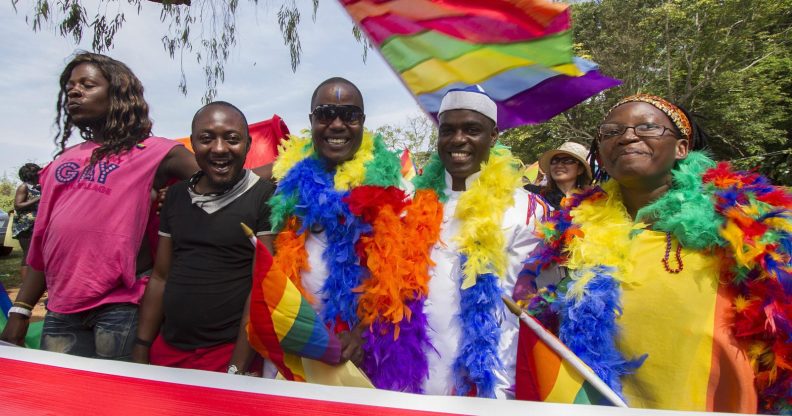
The LGBT+ centre would be the first in the country (ISAAC KASAMANI/AFP/Getty)
The first LGBT+ centre in Uganda has been deemed illegal by a government minister.
Simon Lokodo, the country’s minister for ethics and integrity, said homosexuality was “completely unacceptable” and that he would not allow it to be “popularised.”
Earlier this year, Lokodo also attempted to shut down popular music festival MTN Nyege Nyege on the grounds that it catered to the “celebration and recruitment of young people into homosexuality and LGBT movement.”
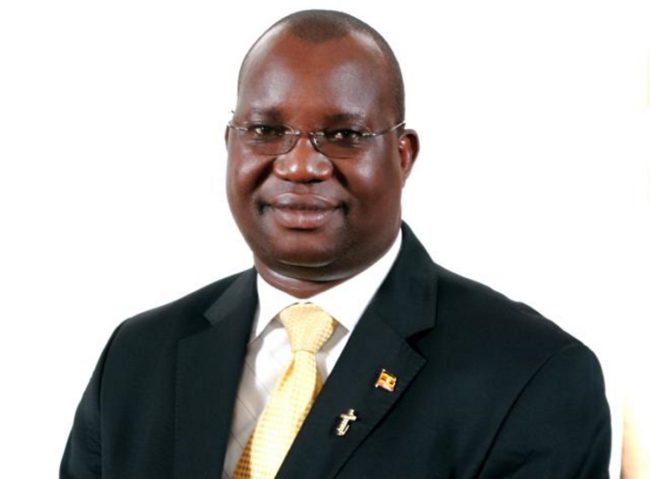
Simon Lokodo (simon lokodo/facebook)
Lokodo, a former priest who has been a Member of Parliament since 2006, wrote a letter to minister of internal affairs Jeje Odongo calling for the festival to be cancelled — but was ultimately unsuccessful in his efforts.
Speaking about the proposed LGBT+ centre in the capital of Kampala, the minister said: “They will have to take it somewhere else. They can’t open a centre of LGBT activity here,” according to The Guardian.
“Homosexuality is not allowed and completely unacceptable in Uganda. We don’t and can’t allow it.
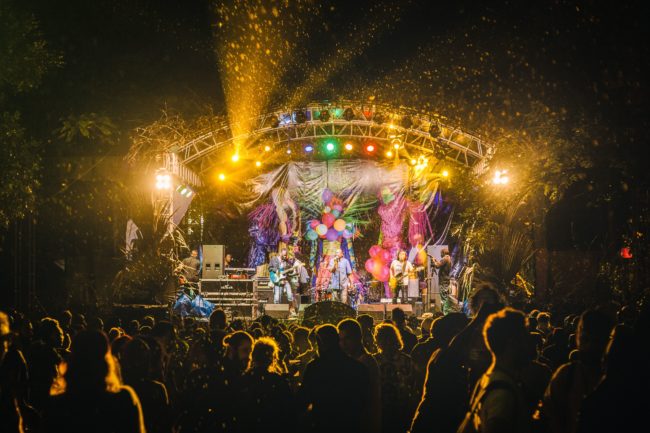
Lokodo also tried to shut down the Nyege Nyege Festival (IAN DUNCAN KACUNGIRA/AFP/Getty)
“LGBT activities are already banned and criminalised in this country. So popularising it is only committing a crime,” he added.
Gay sex is banned in the country, punishable by up to life in prison.
Nevertheless, fundraising will continue, with the director of Swedish and Ugandan LGBT+ group Rainbow Riots, Petter Wallenberg, saying: “Queer people live in fear of being arrested or getting beaten up or killed.
“There is no safe space. This is why my team want to open Uganda’s first LGBT community centre.
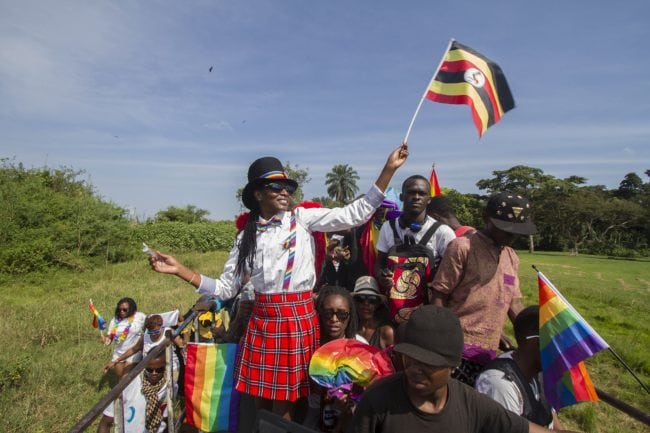
“There is no safe space. This is why my team want to open Uganda’s first LGBT community centre” (ISAAC KASAMANI/AFP/Getty)
“The centre will be a safe space to welcome queer people, encourage and support them. To achieve this, we are currently raising funds to cover the costs,” he continued.
“We will provide opportunities to learn, relax, socialise and will also give advice on health and safety, which is much needed. It will in essence be a support system.”
Alicia Houston, a 22-year-old HIV-positive transgender woman who campaigns for LGBT+ equality in Kampala, said her “vulnerable community” needed somewhere to escape prejudice.
“It will also be a creative space that will cater for many who don’t have other chances to express themselves elsewhere,” she added.
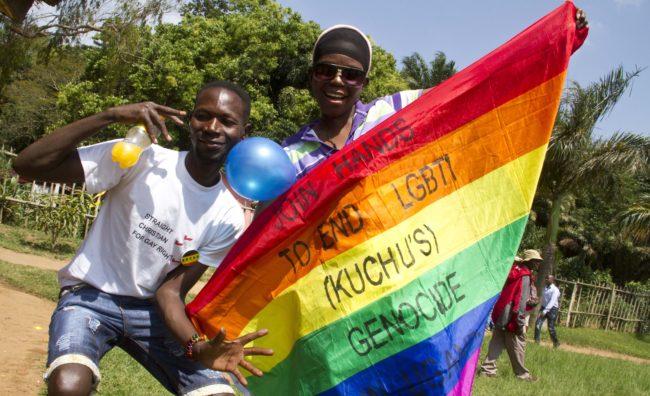
Ugandan men hold a rainbow flag reading “Join hands to end LGBTI genocide” (ISAAC KASAMANI/AFP/Getty)
Kowa Tigs, a campaigner who is part of Rainbow Riots, said: “In Uganda anyone can humiliate you, embarrass you, chase you from his house, school or even home and you know there is nothing you can do about it.
“There is resentment and hatred towards LGBTI people and they are seen as evil and un-African.
“We have had team members drop out because they are scared of being exposed. But if we don’t speak out, then who will? Someone has to take a front seat.”
In April, President Yoweri Museveni demonstrated the ignorance still prevalent in Uganda when he said that “outsiders” were trying to get people in his country to engage in oral sex, an act which he said was “wrong” and unnatural.
He told an audience: “The mouth is for eating, not for sex.”
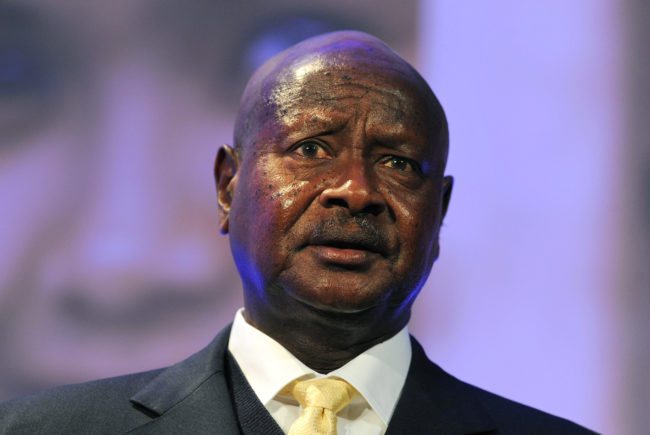
He said: “The mouth is for eating, not for sex” (Getty)
To laughs from the crowd, he added: “We know the address of sex; we know where sex is.”
Museveni has clamped down on LGBT+ people ever since taking charge of the country more than three decades ago.
In 2014, he signed the draconian Anti-Homosexuality Act, which was eventually annulled by the constitutional court.
The law called for repeat offenders to be sentenced to 14 years in prison and to make it a criminal offence not to report someone for being gay.
The leader also passed a law to abolish term limits for the office of president in 2005, and earlier this year ended any age limit for the role – which allows him to continue ruling indefinitely.

